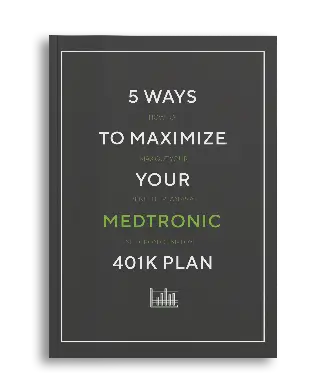Why Should I Consider a Roth Conversion?

A Roth conversion is a financial strategy that involves moving funds from a Traditional IRA or a qualified retirement plan, such as a 401(k), to a Roth IRA. This conversion has several potential benefits, making it a viable option for some individuals looking to optimize their retirement savings.
Tax Diversification
Roth conversions provide tax diversification in retirement. Converting a portion of pre-tax retirement savings into a Roth account creates a tax-free income stream for the future. Having both Traditional and Roth IRA funds gives flexibility when it comes to managing your taxable income during retirement, potentially reducing your overall tax liability.
Tax-Free Withdrawals
Unlike Traditional IRAs or 401(k)s, qualified distributions from a Roth IRA are tax-free. A Roth account is eligible for withdrawals once held for five years and the holder is 59½. Further, those withdrawals then don’t incur any taxes. This can be highly advantageous during retirement, as it allows access to your savings without the worry of tax burdens.
Potential for Long-Term Growth
Converting assets into a Roth opens the potential for long-term tax-free growth. Over time, this tax-free compounding can significantly boost your retirement savings, especially if you expect your investments to experience substantial growth.
No Required Minimum Distributions (RMDs)
Traditional IRAs and 401(k)s have required minimum distributions (RMDs). These are mandatory withdrawals that can limit your ability to keep funds invested for the long term. Roth IRAs, however, are not subject to RMDs during the account holder’s lifetime. This allows your money to continue growing tax-free for a long time.
Estate Planning Benefits
Roth IRAs offer valuable estate planning advantages. After your passing, your beneficiaries can inherit a Roth IRA tax-free and continue its growth over their lifetimes. This depends on who your beneficiaries are. For example, your spouse gets to inherit it tax free for their lifetime. However, everyone else is subject to the 10-year rule. This can be an efficient way to transfer wealth to the next generation and provide them with a lasting financial legacy.
Manage Future Tax Rates
A Roth conversion allows you to control when you pay taxes on your retirement savings. If you anticipate being in a higher tax bracket in the future or expect tax rates to rise, a conversion now could lock in today’s lower rates. This has the potential to save you money in the long run.
While Roth conversions can be beneficial, they are not without potential drawbacks. Converting a large sum may result in a significant tax bill in the year of conversion. If converting a Traditional IRA to a Roth IRA, you will owe ordinary income taxes on any previously deducted Traditional IRA contributions and on all earnings. Further, a conversion may place you in a higher tax bracket than you are in now.
It’s essential to carefully assess your financial situation, goals, and tax implications before deciding to convert. Consult with a Perspective 6 Group Financial Advisor to help you determine if a Roth conversion aligns with your retirement strategy and overall financial plan.







